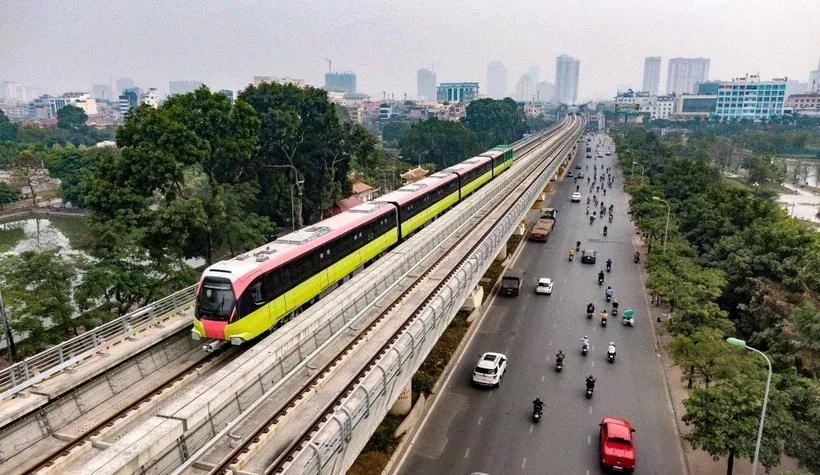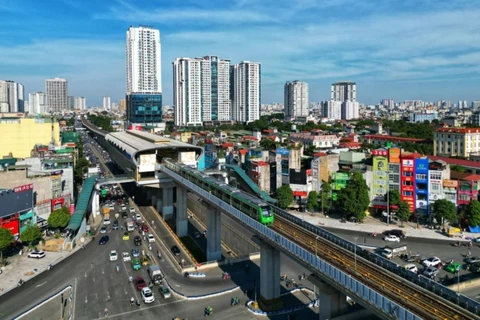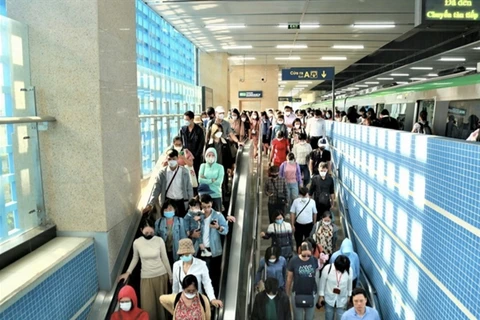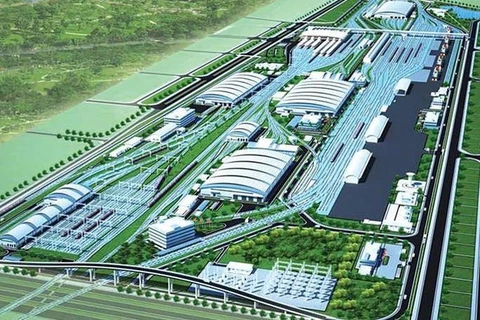
Hanoi (VNA) - Urban railway creates an important locomotive for the rapid and sustainable socioeconomic development for Hanoi in the time to come, in association with urban development.
Hanoi has prepared plans on investment capital for the urban railway system aimed at accelerating the public transport development, opening up an urban development space in the trend of other countries in the world.
“Backbone” of capital transport
In the master plan for the building of the capital urban railway system by the Hanoi Metropolitan Railway Management Board (MRB), head of the board Nguyen Cao Minh stressed the urban railway system is a “backbone” of the city’s transport infrastructure.
The development of the urban railway system is an objective certainty, an important locomotive for the city’s rapid and sustainable socioeconomic development strategy, in association with urban development and environmental protection. Efforts are being made for public transport to make up 50-55% of the total passengers by 2035, and 65-70% after that date.
Under the plan, Hanoi will see 15 urban railway lines stretching 397.8 km by 2035 and 196.2km by 2045. The MRB also projects a primary need of about 55.44 billion USD by 2045.
For public capital sources, the MRB projects that the city will need about 11.5 billion USD by 2030, 16.9 billion USD by 2035, and 29.21 billion USD by 2040.

The above-mentioned figures will be adjusted in the implementation of the project and investment preparation to ensure safety, utilisation, and suitability to the city’s socioeconomic development, Minh highlighted.
Breakthrough policies, mechanisms needed
The rail lines being built with ODA capital will continue, while the new lines will be funded with the State budget. The city proposed that those lines that run through the centre of the city and that have studies and detailed designs will go first, to be followed by the circumferential belt lines.
To ensure that the municipal budget holds the leading and decisive role, Hanoi authorities prioritised medium-term public investment. They also asked the government to allow the city to collect all the revenue as re-investment, while proposing breakthrough mechanisms and policies to accelerate the procedures in preparation for investment.
Hanoi will be allowed to amend the land use functions of the plots, to decide on the contents and procedures on specific policies concerning the land retrieval and compensation, and to shorten the time needed for project verification and approval.

The municipal authorities also propose that the capital planning for specific technical infrastructure be used for decisions on the investment intent and the building of the urban railway lines of the capital city.
In the case of the extension of the time of project implementation of the project without increasing the total investment, they propose allowing the investors to be exempted from having to make procedures on the adjustment of the investment intent and that of the project itself./.






















